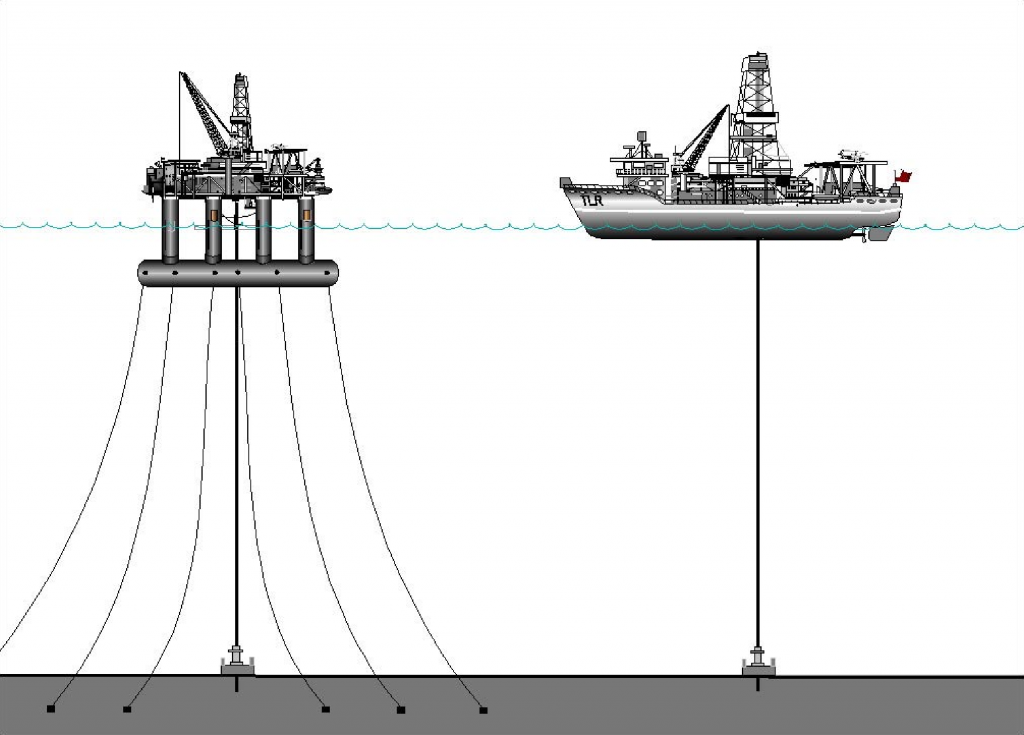€250,000 dished out since 2007 for scholarships linked to oil and gas industry, new data reveals

August 16th, 2017
The Department of Communications, Climate Action and Environment (DCCAE) paid out almost €250,000 for scholarships linked to the oil and gas industry over the past decade, new data reveals.
Figures released to The Green News under Freedom of Information legislation shows that funding for 25 scholarships was handed out between 2007 and 2016 under a department scheme. Details for the 2017/18 funding stream were released on the department’s website just days after the Dáil passed the second stage of the Fossil Fuel Divestment Bill.
Funding is provided through the Petroleum Infrastructure Programme Expanded Offshore Support Group (PIP-EOSG), set up in 2002 to fund research on Irish offshore exploration and assist in promoting exploration activities.
A maximum of €12,000 is provided to students undertaking one year MSc degrees, with most funding going to those studying for the MSc in Petroleum Geoscience from University College Dublin (UCD). The Irish Centre for Research in Applied Geosciences at UCD was opened in late 2015 with the help of funding from over 50 industry partners.
Irish Future for Oil and Gas
In a statement, DCCAE told The Green News that oil and natural gas will play a significant role in our transition to a low carbon society in accordance with the 2015 Energy White Paper.
The White Paper sets out a plan to reduce energy emissions by up to 95 per cent by 2050 relative to 1990 levels. Fossil fuels currently account for around 90 per cent of all energy used in Ireland.
Oil and natural gas will “deliver significant and sustained benefits to Irish society” as we move away from higher emission fuels such as peat, the department’s statement reads.
The department also said that support for renewable energy through the Sustainable Energy Authority of Ireland (SEAI) is a “vast multiple” of that provided for petroleum-related research.
According to the department, €26 million was provided for ocean energy research between 2013 and 2016 to find “new market solutions which overcome various barriers in the move to a secure, clean energy future”.
This “doesn’t undo the wrong” of funding petroleum-based research, however, according to Green Party Leader Eamon Ryan, who helped set-up the SEAI’s Ocean Energy Development Unit in 2008.
“Just because there is investment in other areas, that doesn’t give you absolution to continue to invest in petroleum resources,” he added. “It’s just not the right long-term investment.”
“We need to be honest and upfront, and start winding down the petroleum industry in Ireland and not breathe new life into it,” Mr Ryan said.
New Exploration Licenses
On 11 July, the Minister of the Environment Denis Naughton gave consent to Providence Resources to begin drilling for oil and gas in the Porcupine Basin off the south-west coast of Ireland.
The decision was announced just days after a Bill to ban onshore fracking in the Republic of Ireland was signed into law by President Michael D Higgins.
Providence has now begun to evaluate the Druid and Drombeg wells using the Stena IceMAX deep-water drillship, which can drill down to depths of up to 10,000m. Exola DAC, a wholly-owned subsidiary of Providence was also granted a two-year extension to the term of a licence in the North Celtic sea basin in July.

Example of Deepwater drilling systems Graphic: Minerals Management Service. Gulf of Mexico OCS Region
Providence’s Chief Executive, Tony O’Reilly, said that the extension to the Barryroe licence will allow Exola to evaluate the “deeper exploration potential of the licence, which offers exciting upside, over and above the substantial resources already identified in Barryroe”.
Green party Senator Grace O’Sullivan said that recent licensing decisions highlight the “inconsistency” in the Government’s recent policy choices in relation to tackling climate change.
“Whether it’s banning fracking and then encouraging the construction of terminals to import fracked gas from the USA… or signing up to international climate change deals while licensing fossil fuel exploration off the Irish coast, there’s seems to be no depths of inconsistency or hypocrisy this government will not plumb,” she said.
A petition has been started by the Not Here, Not Anywhere campaign calling on Minister Naughten to retract the Providence Resources permit for the Druid and Drombeg wells.
According to the campaign’s spokesperson, Ciara Barry, the decision to allow drilling is “flying in the face of the commitments Ireland has made to fight climate change”.
“We are calling on the Irish government to halt the current drilling and to place a ban on all future exploration and extraction licences,” she added.
“The drilling and potential future extraction of oil poses a huge danger to marine life and fish stocks. An oil spill would endanger not just local wildlife, but also the Atlantic landscape and by extension the tourist industry.”
Industry Funding
Further data released to the Green News shows that PIP-EOSG has received €9.5 million in the last ten years from industry players, such as Eni Ireland B.V.
Eni provided the bulk of the funding, giving €7.5 million between 2009 and 2012 for the allocation of a Frontier Exploration Licence and the extension of an existing license in the Porcupine Basin.
Eni’s parent company in Italy is currently caught up in a corruption scandal over alleged payments to a former Nigerian oil minister in relation to the purchase of a license for a $1 trillion oil field.
The company issued a press release earlier this year offering its “total confidence” that the company was not involved in any alleged wrongdoing. Eni state that an investigation by a US law firm, and commissioned by Eni’s Board of Statutory Auditors and Watch Structure, found no evidence of corrupt conduct.
Earlier this year, Nigeria’s Ikebiri community launched a legal case against Eni seeking the clean-up of a 2010 oil spill in the Niger Delta linked to a burst pipeline operated by an Eni subsidiary.
[x_author title=”About the Author”]







